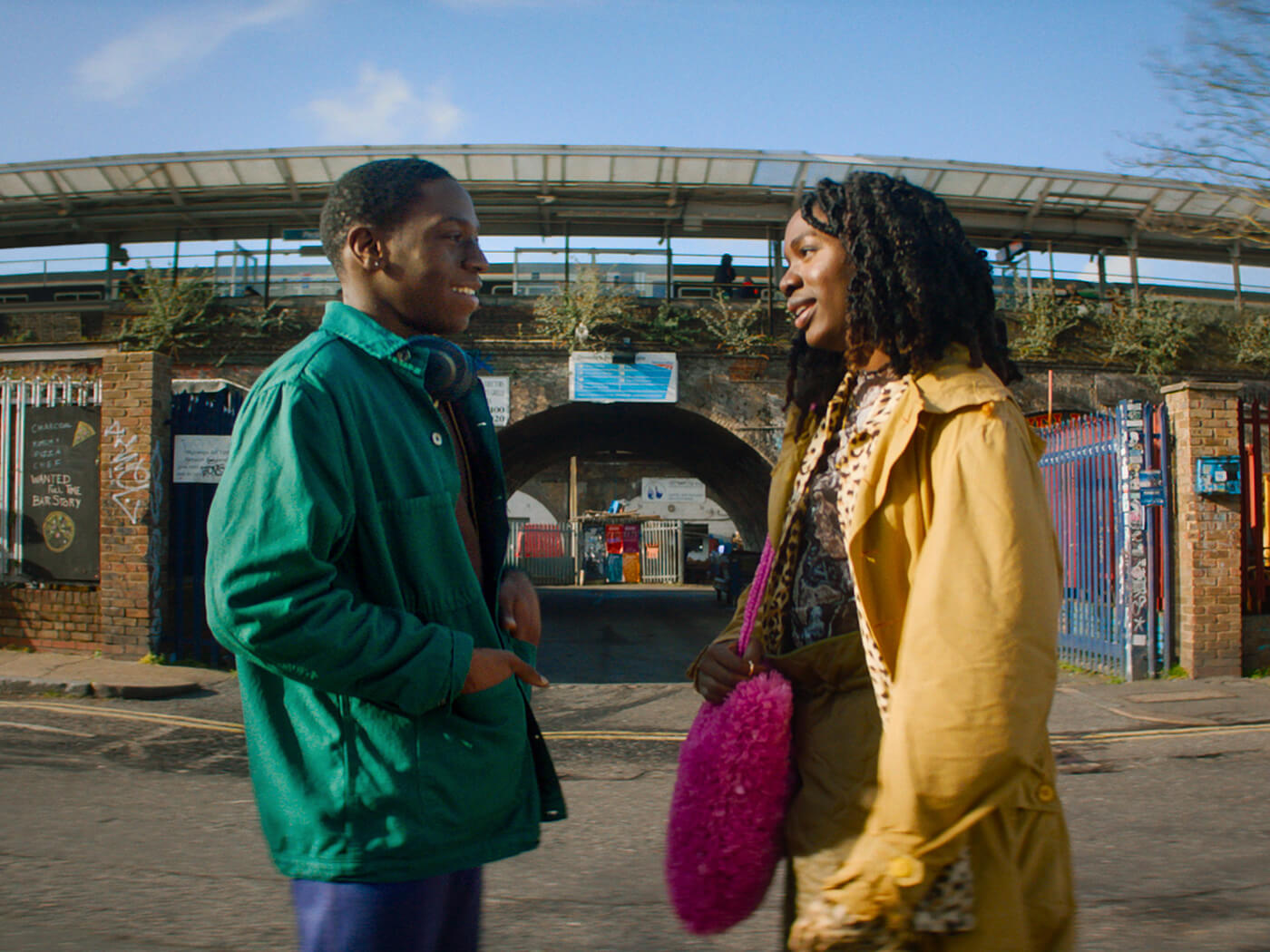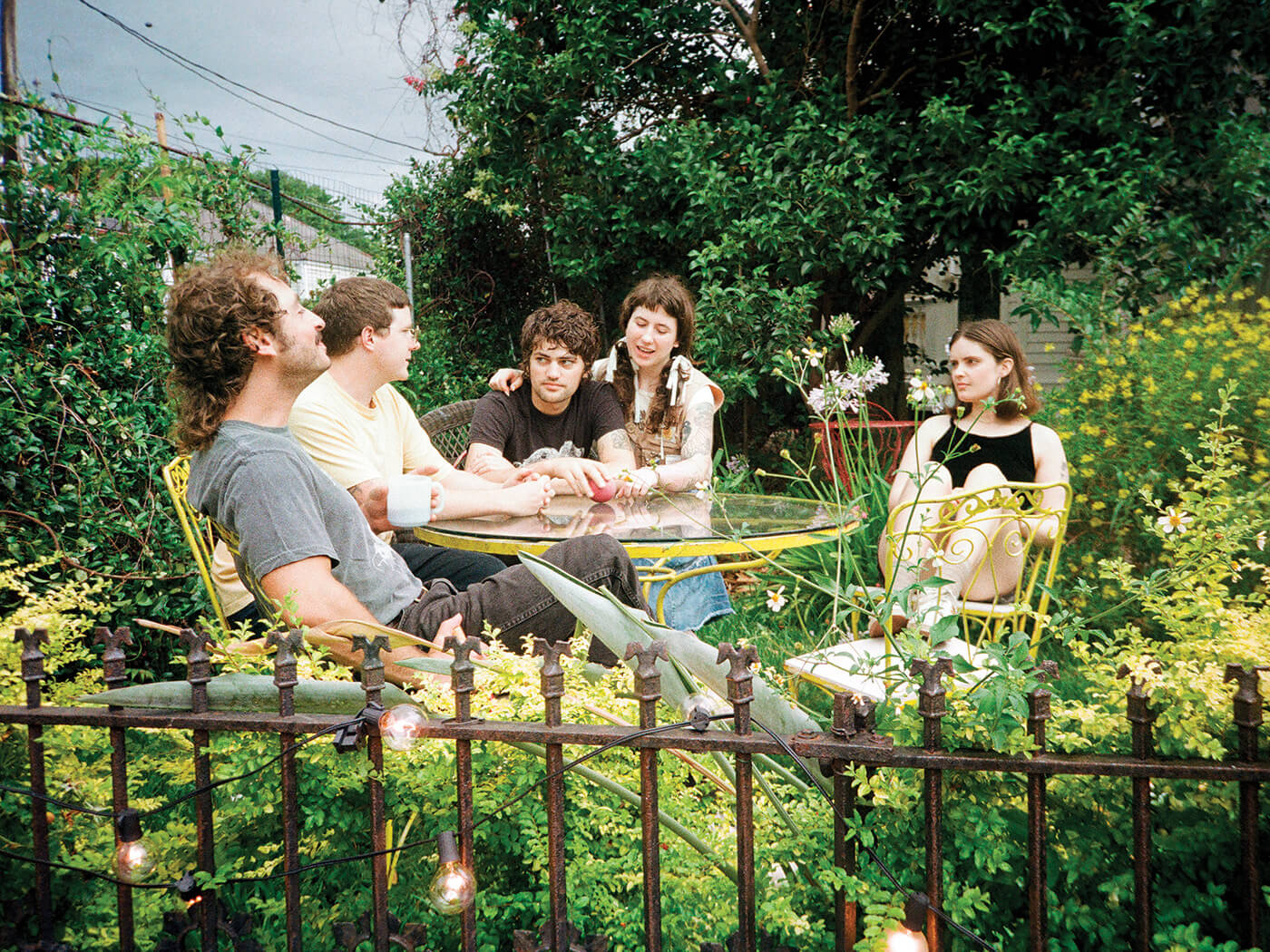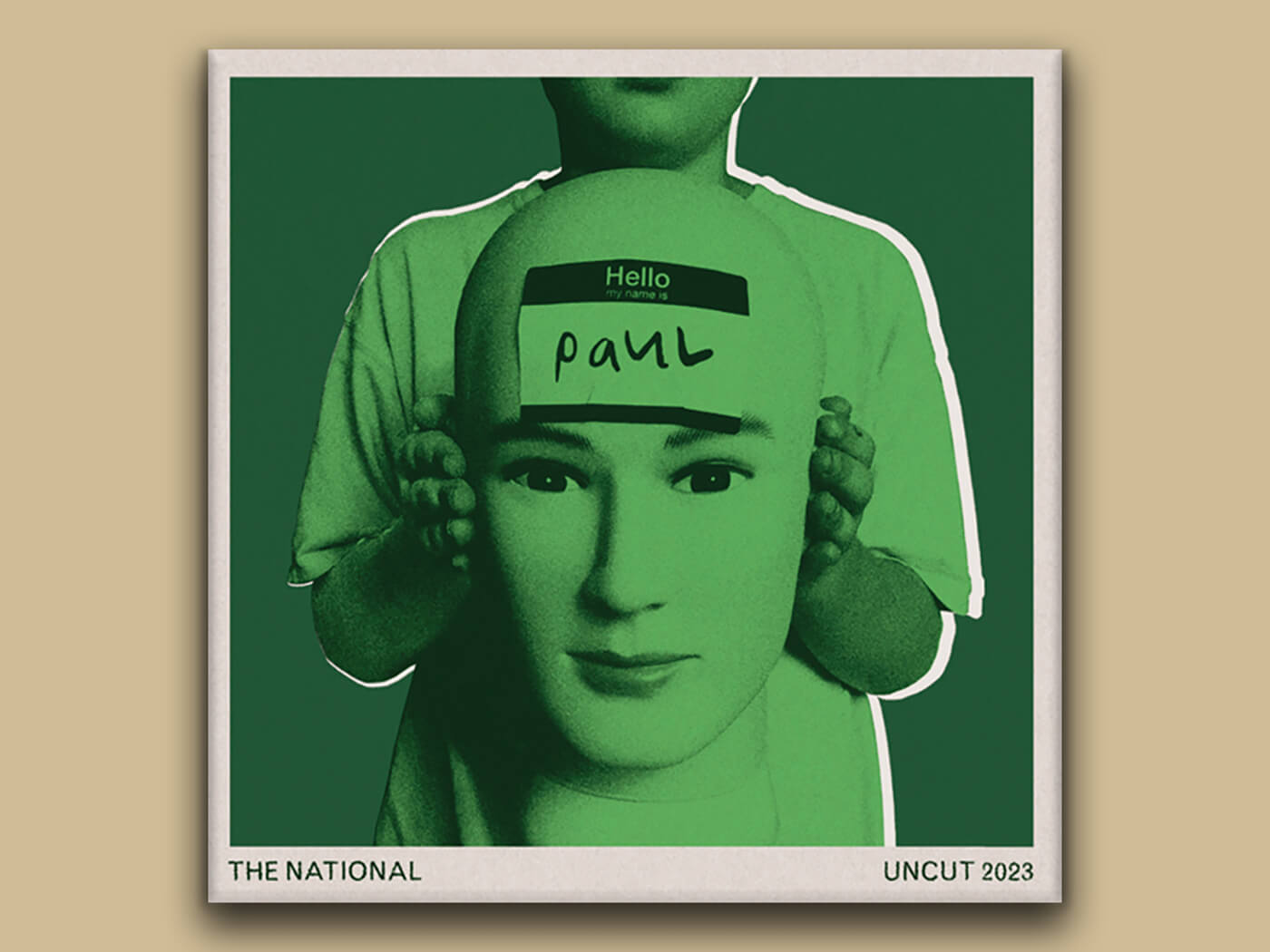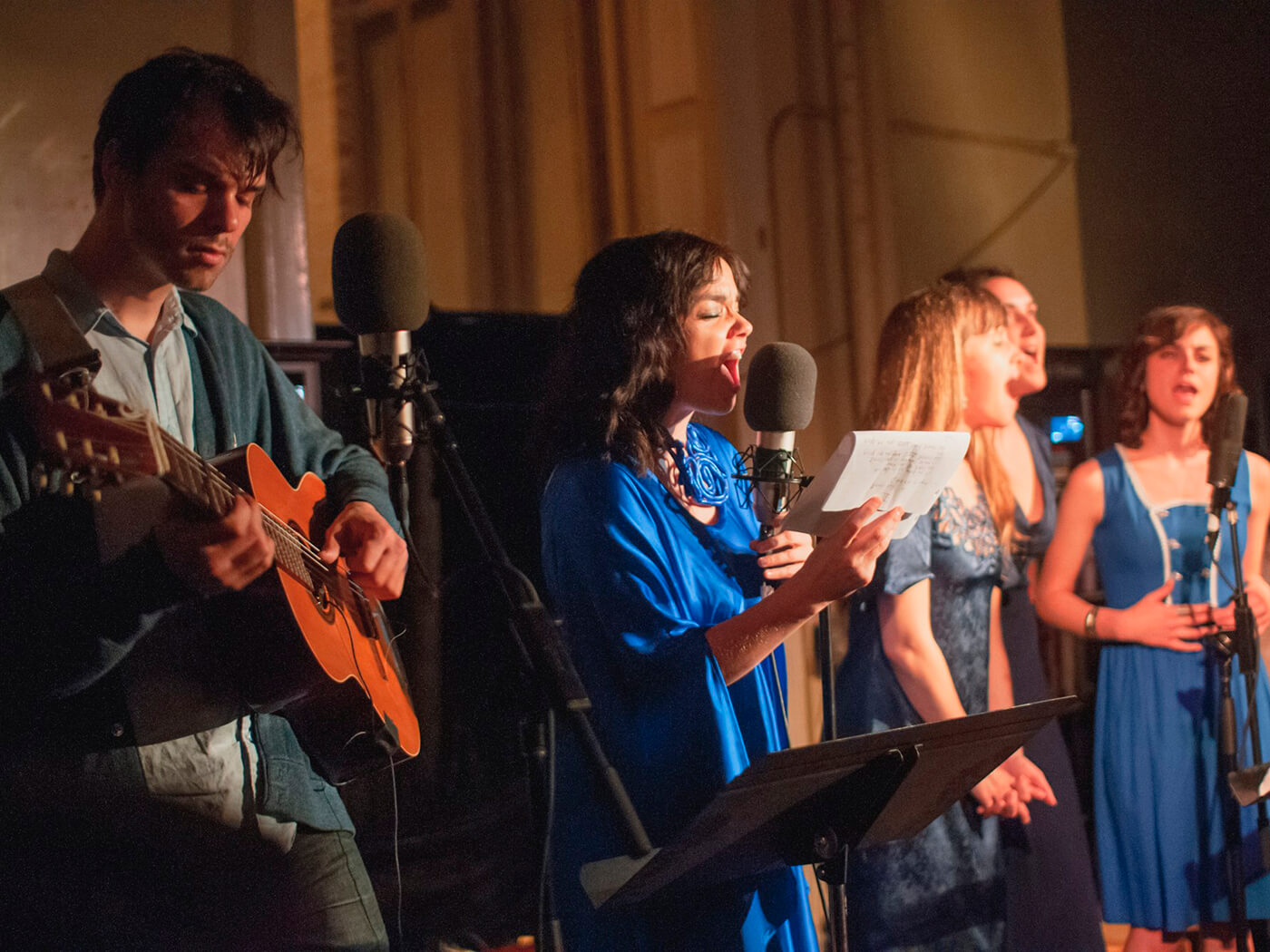Stereolab cross-pollinate with Brazilian band Mombojó to grow something new, in our JUNE 2023 issue of Uncut, available to buy here. It’s clear from more than just their name that Modern Cosmology believe the universe has a plan for them. Full of serendipitous turns and lengthy gaps in the act...
Stereolab cross-pollinate with Brazilian band Mombojó to grow something new, in our JUNE 2023 issue of Uncut, available to buy here.
It’s clear from more than just their name that Modern Cosmology believe the universe has a plan for them. Full of serendipitous turns and lengthy gaps in the action, their tale begins in 2012 in São Paulo, Brazil, where Stereolab’s Laetitia Sadier was performing a solo concert. In attendance were several members of Mombojó, an act from Recife known for playfully merging Brazilian folk, samba and psychedelia with the alt-pop sounds of their favourite UK and US bands, Stereolab in particular. “We grew up on them,” guitarist Marcelo Machado (aka Um Cara Massa) tells Uncut. “We’d been eating their sounds and textures from the time we were 15.”
Starstruck but fuelled by liquid courage, Machado’s bandmate Felipe S passed Sadier a Mombojó CD that night. Months later, she listened to the gift and loved what she heard. As she describes it now, her Facebook message to them essentially read as follows: “If you need some backing vocals, I’m your gal.”
Mombojó’s 2014 album Alexandre included their inaugural collaboration, but the bonds deepened when Sadier joined her five new friends for a two-week residency in Recife. By then the singer was ready to make a stronger commitment: “When it was still ‘Laetitia with Mombojó’, I found that a little horrifying, actually. I thought if we were in the realm of creation, we might as well create a band – that felt like a more honest way to behave.”
The newly minted Modern Cosmology’s first release was 2016’s “Summer Long”, an intoxicating EP to anyone who appreciates Stereolab’s dabblings in bossa nova and has wondered what a space-age Os Mutantes might sound like. Seven years later, they return with What Will You Grow Now?, a full-length LP that’s among the most inventive work either party has ever made, amply demonstrating the “freedom and joy” Sadier found in Mombojó’s amiable company.
Though Stereolab’s reactivation and other projects kept Sadier far from Brazil, they connected online to work on songs started in Recife and others that grew out of Mombojó jams (such as the free-flowing one recorded on a boat that yielded the album’s title track). The project also provided some solace to the participants amid the turbulence that surrounded its creation. “This project bracketed a complex time in the world,” says bassist Missionário José. “The Trump administration was a pain to everybody, and here we had the Bolsonaro administration. We began to make this album before they started to win the elections, and now it’s coming out after all that has… not quite ended, but at least halted for now.”
A vibrant statement of resistance and resilience, the music also retains its sense of spontaneity despite its protracted recording process. “When they sent me the backing tracks, I adored the fact that it felt so open and unfinished,” says Sadier. “I told them we should keep this vibe, because I feel that in music, things can be polished and sealed and finished. I loved that open-ended quality.” Mombojó are equally appreciative of their partner. “She has a talent of flipping ideas upside down,” says José. “We think a song is going in a certain direction but when she adds her vocals and lyrics, now there’s a song we couldn’t have imagined.”
The Modern Cosmology team express their eagerness to happen upon more of these happy accidents, and to finally perform live together again; Brazil’s the likeliest site of shows for now, but time will tell. Either way, they’re thrilled to see this project blossom. “The seeds found the right ground and got the right amount of water and light,” says Sadier, “and they have been growing steadily ever since.”
What Will You Grow Now? is out on May 5 via Duophonic






















